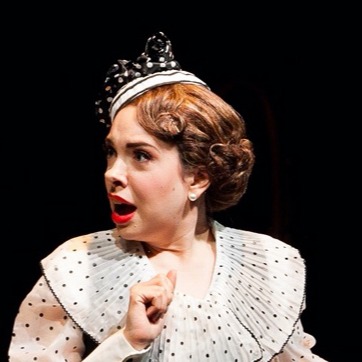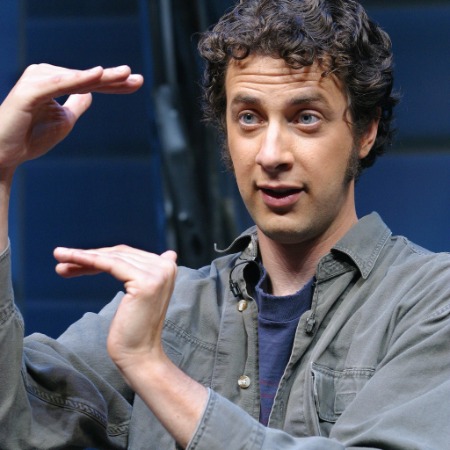FRINGE MASTERS (Part 3): Bravo Brio! T.J. Dawe!
Posted on August 22, 2018 By Colin MacLean Entertainment, Front Slider, Theatre
 Stewart Lemoine’s main offering this year is unlike anything he has ever written before. He calls it A Lesson in Brio (Stage 12). It’s not really a lesson. It’s not a play. Or a musical. At times, it’s quite funny – but it’s not a comedy.
Stewart Lemoine’s main offering this year is unlike anything he has ever written before. He calls it A Lesson in Brio (Stage 12). It’s not really a lesson. It’s not a play. Or a musical. At times, it’s quite funny – but it’s not a comedy.
The playwright gives a few clues as to what he is after by forensically examining the word “brio.” The dictionary defines it as “honour” and “dignity”- also, more aptly “vigour” and “vivacity.” (Musicians recognize it as allegro con brio – to be played at a fast tempo with spirit). In fact, what the prolific playwright has written is something of a valedictory – defined as: summing up a life’s work.
For 70 some plays, beginning with the first Fringe 37 years ago, and extending to the two plays he has at this year’s fest (the other being The Many Loves of Irene Sloane with a troupe of acting lawyers, also on Stage 12), Lemoine has created a sun-dappled world of fascinating, eccentric, visionary people who are in search of “something” in their lives. His people are polite, positive and complex. They listen to each other – in fact, whole adventures come from a brief comment that some character hears, gives shrift and follows through to a conclusion. In Pith a woman who has given herself over to mourning her dead husband finds a new sense of being from a spellbinder who invents a whole Indiana Jones life-affirming adventure for her. In The Exquisite Hour, a lonely middle-aged man meets a mysterious stranger who brings a long-extinguished light to his life. No Indiana Jones here – just two solitary souls who, together, move toward a glowing sunset.
Lemoine has written in all genres: musicals, farces, dramas, screwball comedies – and all with his patented whimsical humour and obvious joy in twisting the English language into sophisticated shapes that are his alone. He never preaches but you can always tell a Lemoine play because the audiences leave with a smile on their faces.
So, A Lesson in Brio is not really a “lesson” because Lemoine is too much a Man of the Theatre to make it so. He gives us a Doctor (Jenny McKillop) “not of the medical kind – more of the philosophical.” She introduces us to a series of performers: “an actor who can play many roles” (Mathew Hulshof), “a singer-actor with many talents” (Rachel Bowron) and a sprightly (supposed) audience member (Patricia Cerra). This is followed by a series of vignettes. Hulshof is a “dumb as a bag of hammers” slacker who, in the gentle manner of the playwright, uncovers a purpose to his life. Bowron is a bottom-of-the-line singer who finds her bliss and ends up as the classic salon chanteuse in a sexy gown, languishing atop a grand piano (a la Judy Garland) and delivering a graceful version of a classic standard. Those are just two of the vignettes, but they exemplify Lemoine’s positive, buoyant approach to his art.
At the end Hulshof delivers an obviously heartfelt solo … a valedictory that sums up Lemoine’s’ sunny, hopeful and optimistic philosophy. It’s the sort of thing the playwright himself might deliver to a high school or university graduating class.
A Lesson in Brio is a courageous step for this Edmonton playwright. A decent and shy man in person, he exhibits a lot of what is important to him in this hour – what has driven him and the forces that shape his work.
And it’s darn entertaining, too – but we’d expect nothing less from Stewart Lemoine.
5 out of 5
***
 In the early years of the Fringe, certain companies laid down the tracks that molded the festival into what it is today. One remembers Ken Brown’s Life After Hockey, The English Suitcase Theatre Company and (fondly) Three Dead Trolls in a Baggie.
In the early years of the Fringe, certain companies laid down the tracks that molded the festival into what it is today. One remembers Ken Brown’s Life After Hockey, The English Suitcase Theatre Company and (fondly) Three Dead Trolls in a Baggie.
There was another individual who left an indelible stamp on the Fringe – T.J. Dawe.
With his amiable free-form delivery, lively sense of humour and deceptively theatrical timing he was everyman on stage – except that (apparently) nothing dull ever happened to him. He set the bar high for one-man shows and the Fringe was never quite the same again.
This year the Vancouver playwright and actor returns with the show that started his love story with local audiences 15 years ago – A Canadian Bartender at Butlin’s (Stage 22). As a very young man in the ’90s, he found himself working for Butlin’s – a low-end resort for the British working man designed to help the Brits get away from the desperately grim lives they were living. Dawe lived way in the back in the cramped staff quarters while working impossibly long hours for slave wages. His stories are about a Canadian boy’s experience in this uniquely British institution, and the colourful characters who inhabited the lowers depths with him. (The Brits used to wake him up just to hear him talk in that exotic Canadian accent.)
If you saw it you probably remember the experience as a the protracted shaggy-dog tale – “It’s all in the telling,” he says – and it has aged very well. Dawe has become even more polished but has lost none of his gosh-almighty charm. He uses his lanky body as a fluid prop, bounding about the stage, flailing his long arms – his tale spilling out as if he can barely contain himself.
He has another effective technique. He throws in seeming non sequiturs – stories that seem to have nothing to do with the central tale. Things like – ocean undertow, a mysterious open window from his youth, leaping off the high diving board as a kid, falling from a tree. And cagily, all the stories come together at Butlin’s.
As he has over the years, Dawe has included a set-piece or two to remind us that he is a consummate performer. My favourite was his rapid-fire, rap-like recreation of a bunch of pissed-off Brits at the bar. Another is an incomprehensible story told by a cockney stage comic in an accent as thick as London fog.
An endearing performer back in rare form.
Slinging warm beer has never been so entertaining.
5 out of 5











